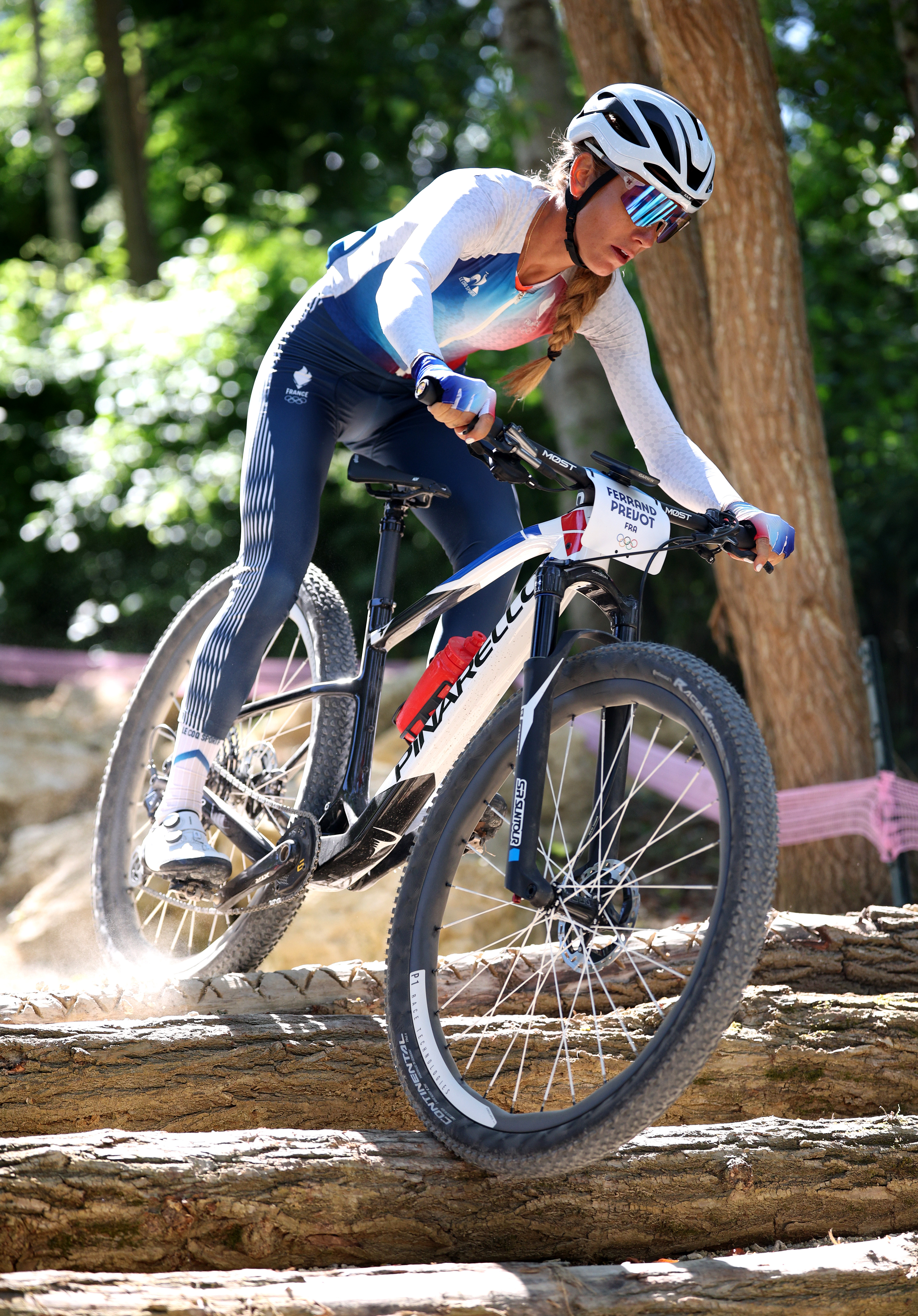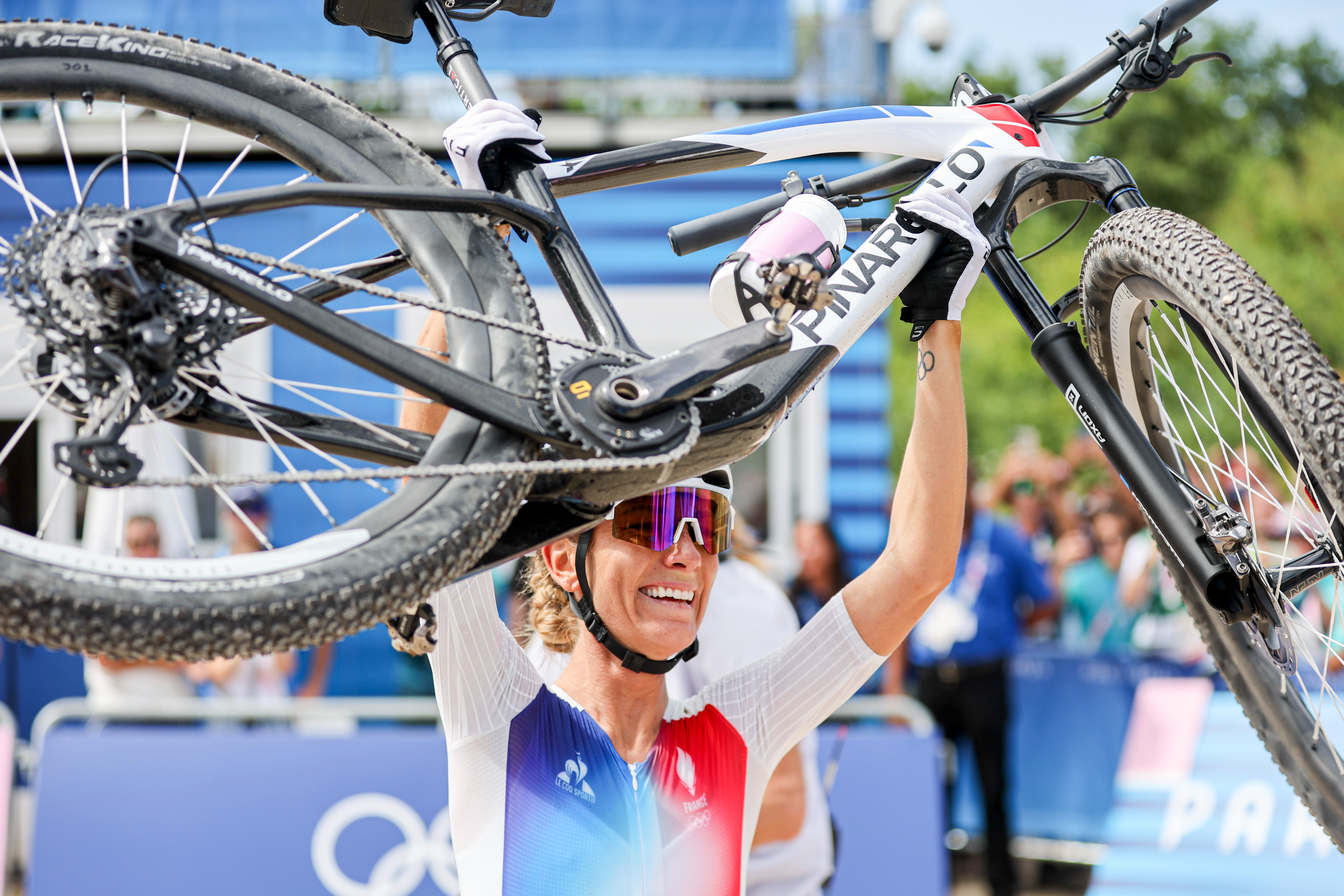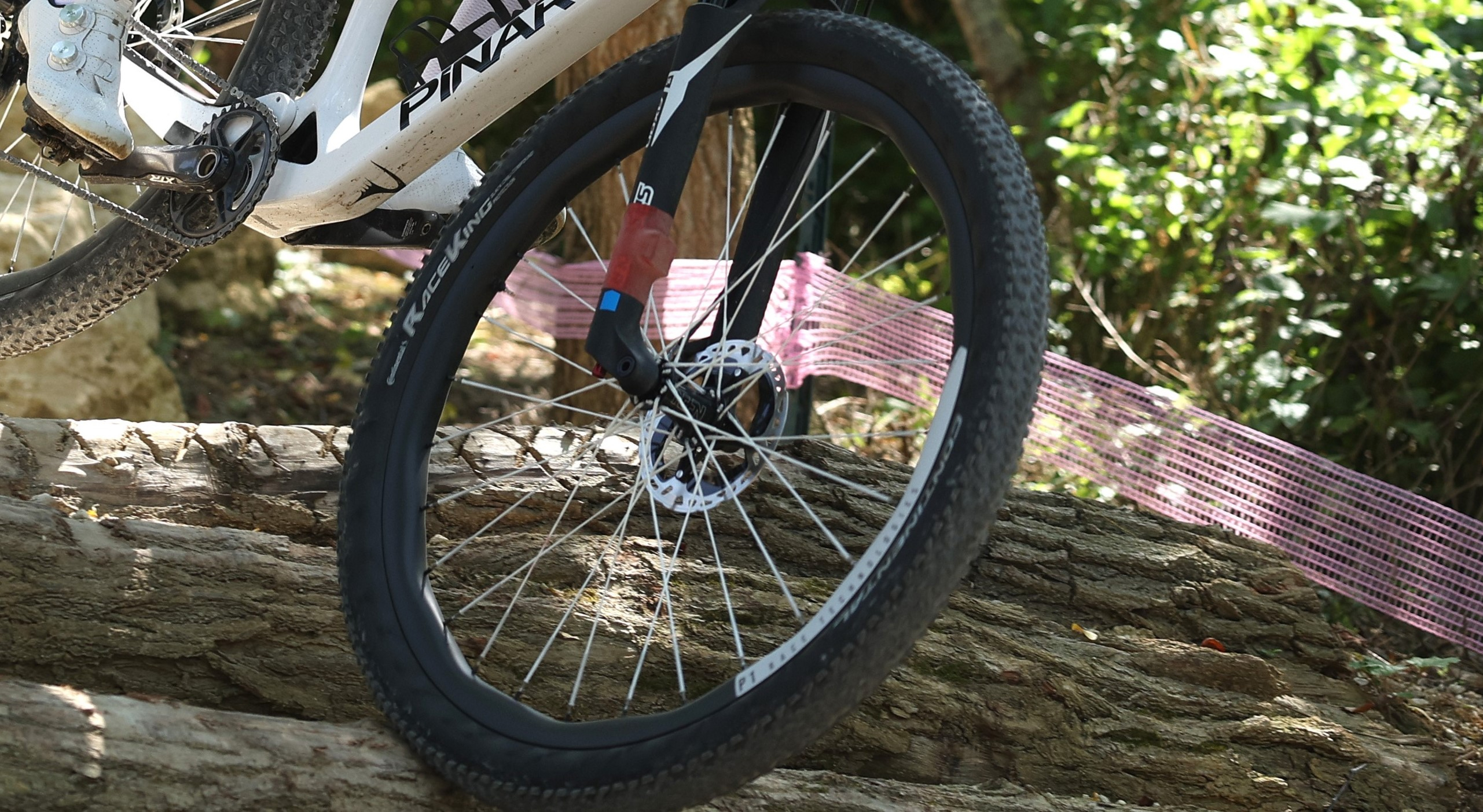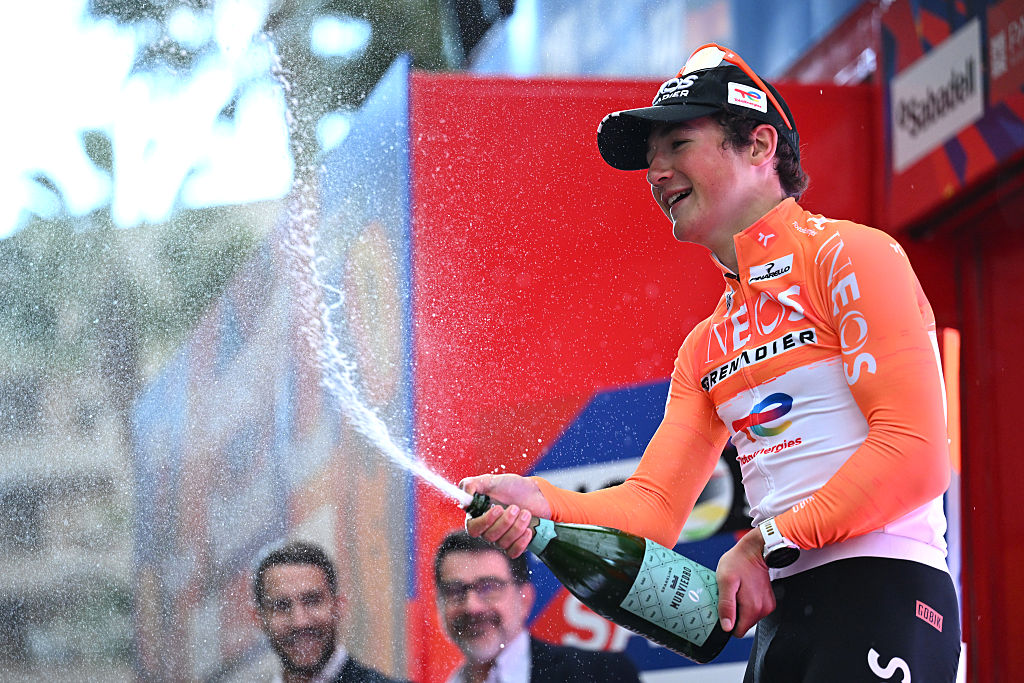Plastic spokes and wavy rims: The clever wheel tech that powered Tom Pidcock and Pauline Ferrand-Prévot to Olympic glory
Pidcock and Ferrand-Prévot both used polyethylene Berd spokes to win Olympic Cross Country Mountain Bike titles

The latest race content, interviews, features, reviews and expert buying guides, direct to your inbox!
You are now subscribed
Your newsletter sign-up was successful
Tom Pidcock fought to victory in the Olympic men's XC MTB title yesterday, following in the footsteps of Pauline Ferrand-Prévot who demolished the women's race in a classy display the previous day.
Away from international duty, both Pidcock and Ferrand-Prévot ride for the Ineos Grenadiers professional team and as a result were both using Pinarello mountain bikes, but with some differing equipment choices. Ferrand-Prévot chose to use a hardtail machine with only a front suspension fork, while Pidcock went for a full suspension model.
Both riders, however, used exactly the same wheelset, which caught our eyes due to the unusual and eye-catching white spokes.
The wheels are custom-built and use PolyLight spokes from Minnesota brand Berd, P1 Race Tech carbon fibre rims, and NonPlus hubs.
We thought we would dig into the tech, specs and costs behind those white spokes and wheels that have just been ridden to back-to-back Olympic mountain bike titles, which isn't a bad track record.

The world's lightest spokes
The wheelsets spokes are from Berd and are manufactured from Dyneema which is a type of polyethylene. Dyneema is said to have a far stronger strength-to-weight ratio than steel, whilst also being a lot lighter than conventional spokes. Berd PolyLight spokes have been on the market for a while now, but aren't used in WorldTour road racing. You'll most likely see them on super lightweight hill climb bike wheelsets thanks to their sub-three-gram weight per spoke.
The Dyneema Berd 'string' spokes have a threaded connection to meet the spoke nipples that is the same gauge as a regular metal spoke on one end, so the spokes can be tensioned and built into a wheel. Until then, they aren't rigid and look like shoelaces or string. The other end of the spoke uses an eyelet that is threaded through j-bend or straight pull hub flanges.
The latest race content, interviews, features, reviews and expert buying guides, direct to your inbox!
The spokes themselves are priced at an RRP of £7 / $8 each on Berd's website. More expensive than most regular, decent-quality spokes which usually come in at £1-3.
We counted Pidcock's and Ferrand-Prévot's wheels to have 28 spokes front and rear. That makes for a total of £392 / $448 in spokes alone for each rider's wheelset.
We're sure both riders tested a range of wheels and spoke tensions ahead of the games and we assume chose this setup for the weight-saving and ride characteristics.
Cost per pair of wheels: £392 / $448

NonPlus hubs
Hubs for the wheels are from NonPlus Components, a German wheel and hub manufacturer. Both riders were using the NonPlus MTB Boost hub set which retails at €700 per pair.
According to the brand's website, the aluminium hub set uses a 'conical gear' freehub body design which is said to provide '400% more surface contact'. In plain speak, this means an angled freehub body drive ring system that should provide better drive under load, surely well suited to the demands of MTB racing.
We're told the hubs' bearings also contain a special lubricant that's thinner than regular grease, which is said to 'significantly reduce friction'. A rear hub weighs in at a claimed 177 grams. The front weight isn't listed but it will be even lighter.
Cost per wheelset: €700 / £589 / $758

The P1 rims
Completing the build are wheel rims from P1 race tech. Which we understand to be an offshoot or subsidiary of Princeton Carbonworks. Ineos Grenadiers, the trade team of both riders, use Princeton wheels in time trials mostly these days, but they have used the brand's road wheels too in the past despite being sponsored by Shimano. There is a clear link with the road world here, and the P1 website states it's an official partner of the Ineos Grenadiers road team.
The rim used by both riders is the Singularis M30 carbon fibre wheel rim, which has a claimed weight of 419 grams and uses a 30mm internal, hookless rim. It also features the same 'wave' rim profile seen on other Princeton wheels. The wheels have a listed price of $1,800 - $2,200.
Adding the same spec wheel to the website shopping basket results in a $2,800 total and looks to be for the rear wheel only. The brand also mentions an M26 model also being available to the riders, but this isn't currently listed on the website.
We got in touch with P1 and got some extra info on the wheels. This confirmed our suspicion that the wheels - or at least the rim - were pretty much designed exclusively for Ferrand-Prévot and Pidcock to use. It also told us it was the first wheelset the riders were 'unable to break'.
"The goal of the P1 Singularis M30 and M26 was to create the fastest, toughest, race-ready wheelset, specifically to win the Olympic games. We went through a highly iterative design process starting in 2022 and worked directly with Ineos, Pinarello, Pauline, Tom, and their coaches and mechanics."
As you might expect ahead of an event like the Olympic MTB race, a programme of testing and development went on to help the riders settle on their optimum setup for the races.
"We did multiple on-site testing weeks, in 2023 and 2024, with Tom and Pauline testing different spoke types, spoke tensions, tyre widths, rim widths, and tyre pressures, to settle on the optimal configuration for each rider and every condition. Team mechanic Rune Christensen was key to this development as we had constant communication over the last 20 months to help accelerate the iterative process."
Cost per wheelset: $2,800 (NonPlus / Berd rear wheel)
* There are currently no rim / front wheel prices listed online.

Tom joined the Cyclingnews team in late 2022 as a tech writer. Despite having a degree in English Literature he has spent his entire working life in the cycling industry in one form or another. He has over 10 years of experience as a qualified mechanic, with the last five years before joining Cyclingnews being spent running an independent workshop. This means he is just as happy tinkering away in the garage as he is out on the road bike, and he isn’t afraid to pull a bike apart or get hands-on with it when testing to really see what it’s made of.
He has ridden and raced bikes from an early age up to a national level on the road and track, and has ridden and competed in most disciplines. He has a keen eye for pro-team tech and enjoys spotting new or interesting components in the wild. During his time at Cyclingnews, Tom has already interviewed some of the sport's biggest names including Mathieu van der Poel, Tadej Pogačar and Alberto Contador. He's also covered various launches from brands such as Pinarello, Ridley, Specialized and more, tackled the Roubaix Challenge sportive aboard his own rim-brake Cannondale SuperSix Evo, tested over 20 aero helmets in the wind tunnel, and has created helpful in-depth buying advice relating to countless categories from torque wrenches to winter clothing.
